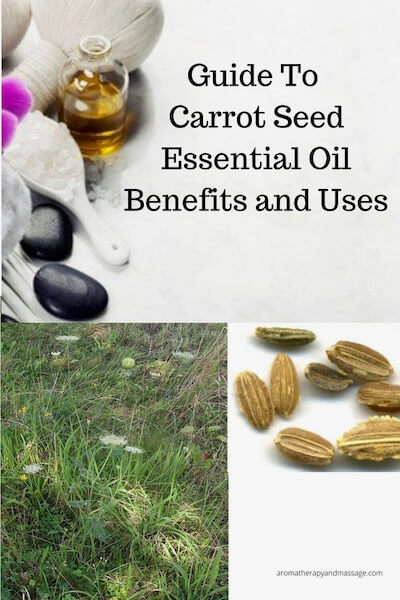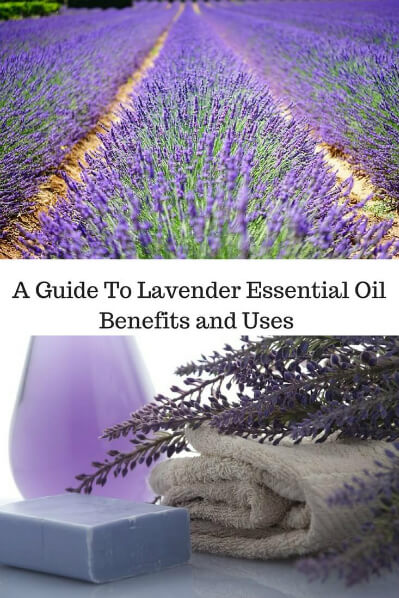- Home
- Essential Oil Profiles
- Carrot Seed Essential Oil
As an affiliate with Bookshop, Amazon, and other programs, I may earn revenue from qualifying purchases through affiliate links. This does not affect the price you pay. Privacy Policy / Disclosures. This site is for educational purposes only.
Search this site:
Guide To Carrot Seed Essential Oil and Its Benefits and Uses
Carrot seed essential oil (Daucus carota) is used for visions and the realms that assist in vision quests, according to Aromatherapy For the Soul. The oil is also commonly recommended to nourish mature skin.
Carrot seed essential oil is different from carrot seed oil or carrot oil. Carrot seed oil or carrot oil is pressed from carrot seeds. You can use it as a carrier oil. Carrot seed essential oil is steam-distilled from the seeds. Know what you’re buying, as how you use an essential oil and a carrier oil are different.

Basic Carrot Seed Facts
Plant family: Apiaceae/Umbelliferae
Production: Steam distilled from the dried seeds of the common carrot plant.
Aroma: Fruity, woody, a bit earthy.
Perfume/Aromatic note: Middle.
System affinities: Skin and digestive, according to The Ultimate Guide to Aromatherapy.
Is carrot seed safe to use during pregnancy? No, and do not use while breastfeeding, according to multiple sources.
Is carrot seed essential oil safe for children? Probably, though maybe not for babies, properly diluted. Consult a professional.
Main components:
- carotol 36.1–73.1%
- alpha-pinene 0.9–11.2%
- dauca-4,8-diene 1.6–5.9%
- beta-caryophyllene 0.7–5.6%
- (E)-Dauc-8-en-4B-ol 1.7–4.1%
Source: Essential Oil Safety, 2nd Edition
Carrot Seed Aromatherapy Benefits
Aromatherapy: A Complete Guide to the Healing Art: Carrot seed stimulates the liver and lymphatic function, improves circulation, and eases digestive problems. The essential oil also improves skin tone and is especially useful for dry or mature skin. Use the oil for skin conditions such as wrinkles, dermatitis, eczema, rashes, skin discoloration, and sun damage.
Essential Oils & Aromatherapy for Dummies: Use carrot seed to relieve dry or damaged skin and hair, dermatitis, eczema, or rashes and to slow down development of wrinkles and sun damage. The oil may also help improve circulation, liver function, and digestion.
The Healing Intelligence of Essential Oils: Carrot seed has liver stimulating properties.
The Complete Book of Essential Oils and Aromatherapy: Use carrot seed essential oil for arthritis, rheumatism, indigestion, water retention, eczema, ulcers psoriasis, acne, and pimples.
375 Essential Oils and Hydrosols: Carrot seed is a tonic and stimulant for the liver.
The Encyclopedia of Essential Oils (updated edition): In skin care use carrot seed to revitalize and tone skin and for mature complexions and wrinkles. The oil may also help relieve dermatitis, eczema, psoriasis, and rashes. The oil may also be beneficial for relieving arthritis, gout, edema, colic, indigestion, liver congestion, and menstrual problems.
Aromatica: A Clinical Guide to Essential Oil Therapeutics, Volume 2: Psychologically, carrot seed stabilizes the mind and promotes integration. It also promotes stability, strength, and cognitive flexibility. Physically, the essential oil restores hypotonic/ weak terrain conditions. In Traditional Chinese Medicine the essential function of the oil is to nourish the Blood, resolve damp, and strengthen the Shen.
Subtle Aromatherapy: Carrot seed strengthens inner vision and lets you perceive the highest truth in times of doubt or confusion. The oils removes blocks that prevent the free flow of energy, especially between the third (solar plexus) and fourth (heart) chakras.
Mixing Essential Oils for Magic: Use carrot seed essential oil for sex magic and element magic. The oil purifies ritual space, clears negativity, initiates change, and brings renewal.
Carrot Seed Essential Oil Uses and Blends
Reviving Body Oil
- 4 tablespoons carrier oil
- 10 drops carrot seed essential oil
- 6 drops basil ct. linalol essential oil
- 8 drops sweet orange essential oil
Combine the ingredients in a 2-ounce (60 ml) glass bottle. Shake gently. Use as a body moisturizer.
Source: Aromahead
Face Cleanser
- 1/4 cup honey
- 1/2 cup glycerin
- 1 tablespoon castile soap
- 20 drops carrot seed essential oil
Blend ingredients in a dark glass container. Use daily to clean your face. Follow with a good moisturizer.
Source Rocky Mountain Oils
Restorative Moisturizer
- 4 tablespoons (2 ounces) organic unscented lotion
- 10 drops carrot seed essential oil
- 5 drops neroli essential oil
- 2-ounce (30 ml) glass or PET plastic jar with a lid
- Fill the empty jar with unscented lotion.
- Drop essential oils directly into lotion.
- Stir for at least one minute to blend.
Source: Essential Living
Skin Serum for Mature Skin
- 1 tablespoon rosehip oil
- 1 tablespoon apricot kernel oil
- 6 drops carrot seed essential oil
- 5 drops frankincense essential oil
- 1 drop helichrysum essential oil
- 30ml dropper bottle
- Add the rosehip and apricot kernel oils to the dropper bottle.
- Drop in the essential oils.
- Close the bottle and gently shake to blend the oils.
To use: Massage 10 to 20 drops of the skin serum on your face and neck before bed.
Adapted from Cheryl Murphy, Certified Aromatherapist. "The Apiaceae Plant Family," NAHA Aromatherapy Journal, Spring 2017.1, p. 16.
Photo Credits: Carrot Seeds — John Alan Elson, CC BY-SA 3.0, via Wikimedia Commons. Carrot plant — Rasbak - Own work, CC BY-SA 3.0.




